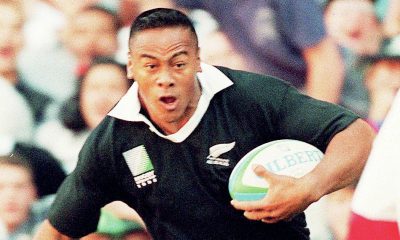
Basically, what Fahey said was that such associations are not representative of sportsmen and women and should not be given a bigger say in how sports are run.
Obviously those associations’ representatives (including the chairman of the International Rugby Players Association, Damian Hopley), condemned his view and sought to use his comments as a recruitment tool for a new federation of athlete associations under the banner of UNI Sport PRO Global Athletes Union to give elite sportsmen and women an independent voice and a seat at the table of all sporting organisations.
What was not said at this meeting is that these associations generally represent only a tiny minority of those that take part in sport and that minority are those in the professional game.
The International Rugby Players Association does not allow membership to anyone who is not a professional player – and if the rest of the sports represented are the same, then I would have to say that Fahey is right.
In England there are more than 110,000 male senior rugby players of whom less than one per cent are members of RPA, and membership was once restricted to just the premiership, so how can that be representative of the game as a whole particularly when the needs of professional players are not the same as the rest of those who play?
While it is natural and right for professional players to be represented and their rights (image etc.) protected, much of that work should be done by a player’s agent who cannot be a part of RPA as it would be a conflict of interests.
That aside, there is much for a players’ association to do, particularly at the end of a player’s professional career where, in rugby, the vast majority of professional players will not earn enough in their relatively short careers not to have to work again.
Then there are injured players to support and the RPA, along with the union, does a good job in helping injured professional players but the RPA does not help support those that are injured in the amateur game as that is seen as the domain of the union alone.
The main thrust of all speakers, apart from a robust attack on Mr Fahey and WADA, would appear to be an attempt to make the athletes (within their organisations) the focus of their sport rather than allow that focus to fall on the sports administrators who run and organise competitions.
All laudable objectives were it not for the subtext as outlined in Hopley’s speech where he noted that “all sports organisations are monopolies with strong and growing financial interests” so once again it comes down to money.
He also said, “In the interest of the credibility and evolution of all sports, the athletes must have an independent and collective voice that is respected and heard at all levels.”
Surely the only way to do this is to allow membership to all, not just the selective professional few?
Why should sports governing bodies that have to organise and structure events at all levels, possibly involving hundreds of thousands of participants, make special dispensations for the few that have been identified as elite so that few can make changes to the system?
There was also much condemnation of WADA and the way they enforce their drug testing policies and a call for a reform of anti-doping rules was unanimously agreed. I have to ask why would any athletes’ or players’ association want to make it easier for those that take drugs to avoid detection or receive lower sentences?
In last week’s Daily Telegraph, Dame Tanni Grey-Thompson outlined some of the lengths that athletes will go to in trying to beat the testing system including having their bladders filled with another person’s urine!
She also said how WADA should do more (not less) testing, including more out of competition and from a younger age.
In the week when Steffon Armitage was provisionally suspended for an abnormal drug test result – a suspension lifted on Friday – nobody in rugby should think that drugs are somebody else’s problem.
Before professionalism there were not many cases of drug use in rugby but even then there were a few players and even the odd death in suspicious circumstances, but as there was little or no financial reward for playing there was little incentive to take what are potentially dangerous substances.
Now the rewards and the temptations are there as young players try to reach the size and pace that the modern game requires. It is now the norm for players to use supplements like Creatine to help recovery and training and, in such cultures, it is a small step to taking something to speed up the process.
George Ford has said that he needs to bulk up but what happens if he cannot do it naturally or he doesn’t have the time? If my memory is right it takes about three months of intense weight training to put on a kilo of muscle, the temptation for a little chemical help could be attractive. Not that Ford is the type of person to be swayed by that, but others could be.
The RPA should be educating all young players on the potential dangers of drug use and supporting lifetime bans – not seeking to reduce detection rates or lower sentences!
If Damian Hopley were to use his position as IRPA chairman to support WADA and make it clear that there is no place
in rugby for drugs and that IRPA would suspend membership of any player convicted of their use, his voice would be heard and respected at all levels – not just in rugby.


British and Irish Lions
Weekend Talking Points: Final audition for the British and Irish Lions

International Rugby
Rory Darge eager to test himself against Fiji’s ‘benchmark for physicality’




























You must be logged in to post a comment Login